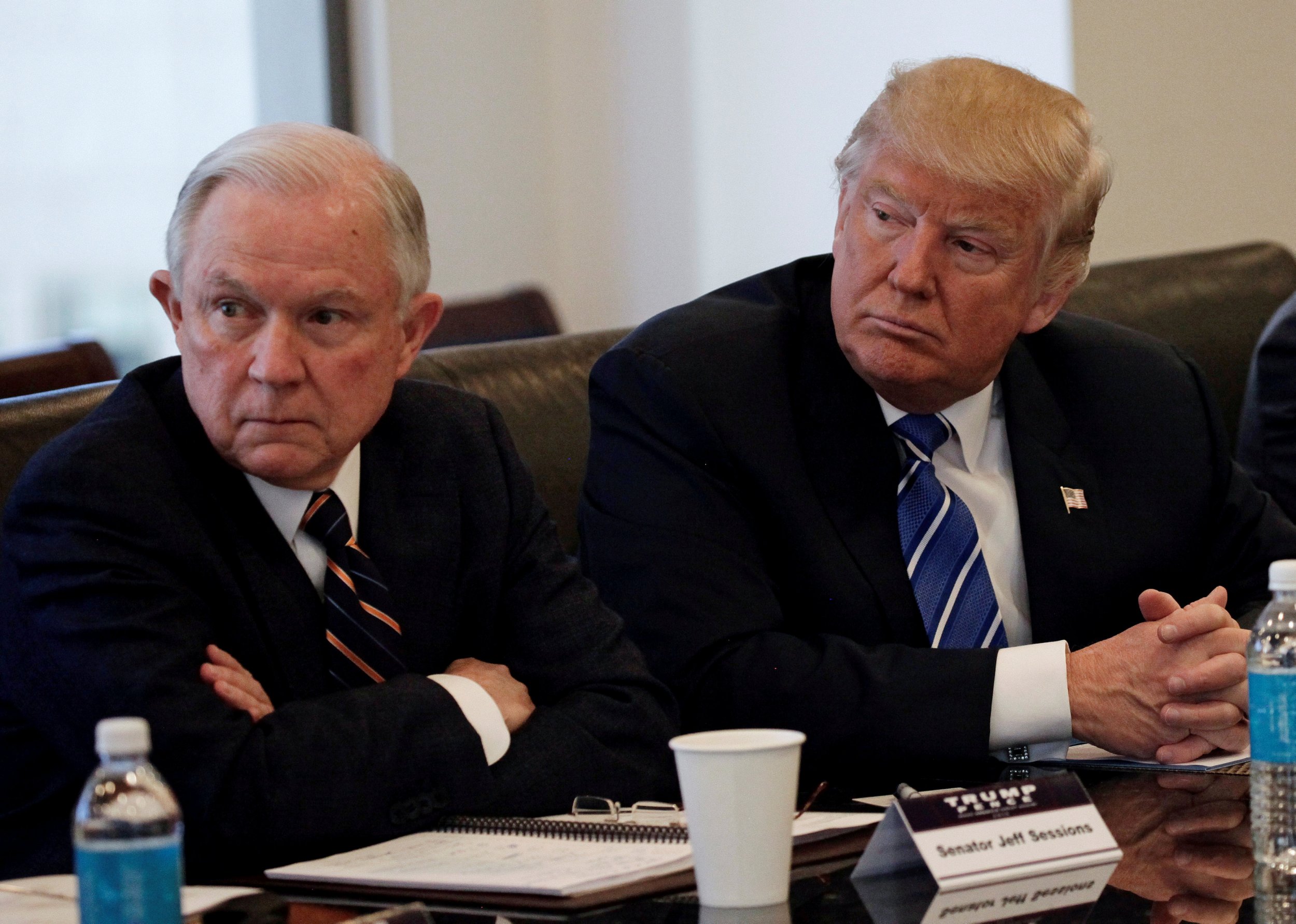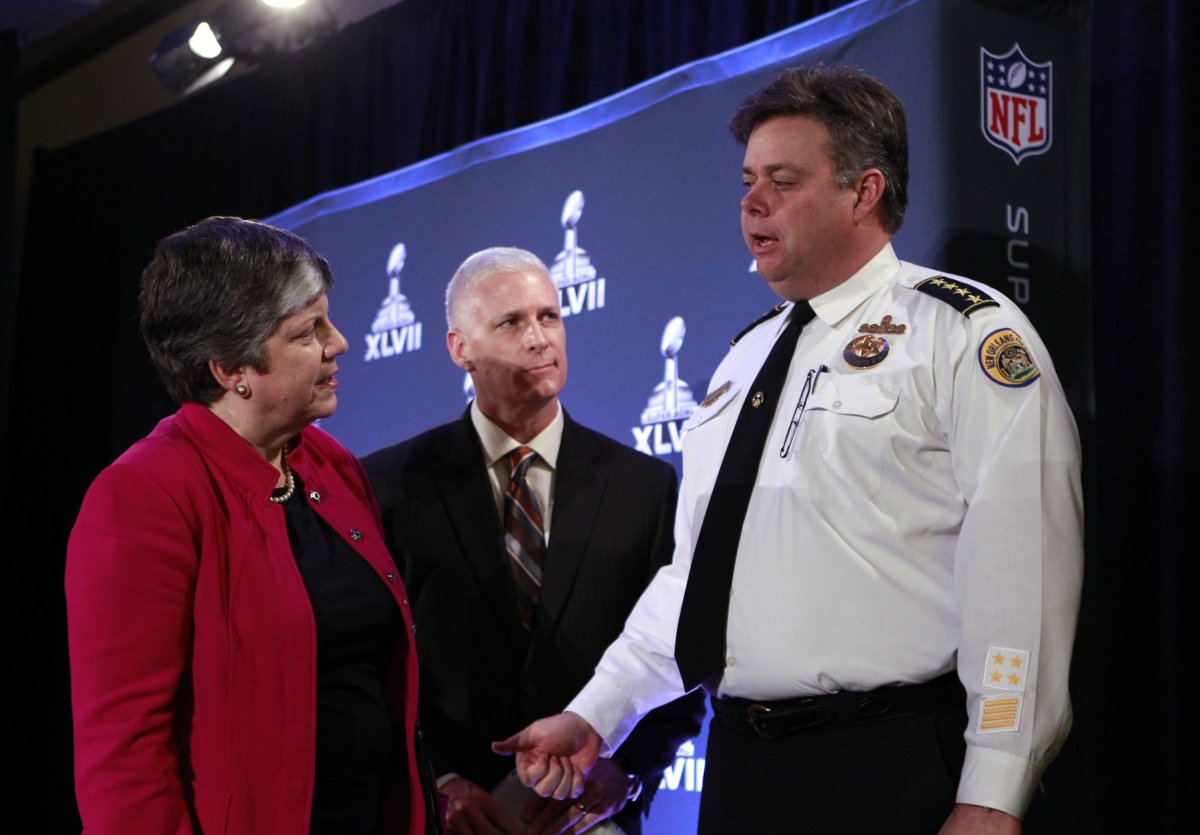
Violent crime in the U.S. increased again in 2016, a rise that could be viewed as reinforcing the dark, "American carnage" view of America expressed by President Donald Trump and U.S. Attorney General Jeff Sessions—but prominent police chiefs and criminal justice experts criticized that as a false narrative and said crime remains near historic lows.
The number of murders spiked by almost 9 percent in 2016—to a total of 17,250—while violent crime increased by about 4 percent, according to new numbers released by the FBI on Monday. (Property crimes fell by about 1 percent.) The jumps in violent crime and murder mirror the results from the previous year, when figures for those crimes increased by about the same amounts, though the violent crime rate in 2015 was still only about half the rate in 1991.
Trump defined his view on crime during his inauguration speech in January, when he described "the crime and the gangs and the drugs that have stolen too many lives," and infamously promised to stop the "American carnage." The next month, the president signed three executive orders that he said would "restore safety in America" by getting tougher on drug traffickers, undocumented immigrants and anyone who commits a crime against law enforcement officers.
Sessions has read from the same playbook, saying repeatedly that the nation's violent crime is rising. In May, he ordered federal prosecutors to charge defendants with the most serious possible offenses—tossing out the more progressive policy enacted under President Barack Obama's Department of Justice in a move widely seen as rejuvenating the war on drugs.
"After decreasing for nearly 20 years because of the hard but necessary work our country started in the 1980s, violent crime is back with a vengeance," Sessions told the Fraternal Order of Police in Nashville last month, adding that the 2015 murder rate increase was the largest since 1968. In a statement on the new FBI numbers Monday, he said, "For the sake of all Americans, we must confront and turn back the rising tide of violent crime."
But many police chiefs and criminal justice advocates have seen the new FBI numbers and drawn the opposite conclusion. "The president and the attorney general want a return to the crime-fighting strategies of the 1990s," Ronal Serpas, former superintendent of the New Orleans Police Department and current chairman of Law Enforcement Leaders, tells Newsweek. He defines such strategies as "high rates of punishing the bogeyman, and low rates of success."
Serpas acknowledges that certain cities, like Chicago and Baltimore, are dealing with surges in violence and murder, but says localized spikes in crime require localized responses, not federal pushes to increase arrests and toughen sentences. Smart police departments across the country are partnering with health departments and formulating strategies that recognize that half the people in jail and prison have mental health issues.
"I've been around politicians a long time," Serpas says when asked why he thinks Trump and Sessions focus on the idea of a crime wave. "It's not uncommon for politicians to claim there's a problem they know doesn't exist, and then turn around a year later and claim victory."

The New York City police commissioner also said the FBI figures show no evidence of a crime wave. "Today's new data confirms what we in New York City have known for years now: Enhanced training, improved tactics and constructive engagement with the public we serve all lead to long-term reductions in crime," said NYPD Commissioner James O'Neill in a statement sent by Law Enforcement Leaders, a project of the Brennan Center for Justice that includes about 200 current and former police chiefs, sheriffs and prosecutors. "More than ever, the NYPD focuses its efforts on the underlying drivers of crime and disorder."
The overall crime rate is expected to drop slightly this year, according to the Brennan Center, a law and policy institute at NYU School of Law. If its estimate holds, the violent crime rate for 2017 would be second lowest since 1990, the Brennan Center said earlier this month.
"The data debunk claims from the Trump Administration that crime is out of control, but do highlight cities where violence is concerning," Inimai Chettiar, director of the Brennan Center's Justice Program, said in a statement on Monday. "Chicago, for example, has had serious issues that need to be addressed. But by painting the entire country with too broad a brush, President Trump and Attorney General Sessions are peddling fear and distracting from the frank and honest conversations needed to find solutions to these real problems."
The Charles Koch Institute, which works on criminal justice and police reform, echoed arguments that more arrests and tougher sentencing—the approach favored by the Trump administration—would not lead to a lower crime rate. "From 2010-2015, the crime rate fell by an average of 14.4 percent in the 10 states with the largest imprisonment declines, and it fell by only 8.1 percent in the 10 states with the largest growth in imprisonment," read an email Monday from the Charles Koch Institute, which was founded and is funded by the Kansas billionaire.
"What we have seen is that in states like Texas and Georgia and Utah, states where they've had criminal justice reforms, we've had crime go down at the same time that we passed sentencing reform," Jordan Richardson, a senior policy analyst at the Charles Koch Institute, tells Newsweek. "We have to remember that crime is a local issue, and local solutions are often what are needed."
Uncommon Knowledge
Newsweek is committed to challenging conventional wisdom and finding connections in the search for common ground.
Newsweek is committed to challenging conventional wisdom and finding connections in the search for common ground.
About the writer
Josh Saul is a senior writer at Newsweek reporting on crime and courts. He previously worked for the New York ... Read more
To read how Newsweek uses AI as a newsroom tool, Click here.








